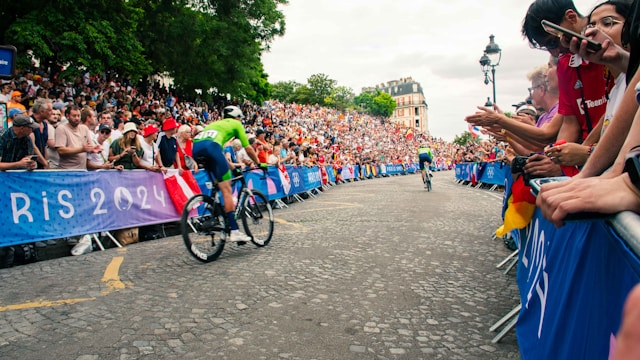Physical Address
23,24,25 & 26, 2nd Floor, Software Technology Park India, Opp: Garware Stadium,MIDC, Chikalthana, Aurangabad, Maharashtra – 431001 India
Physical Address
23,24,25 & 26, 2nd Floor, Software Technology Park India, Opp: Garware Stadium,MIDC, Chikalthana, Aurangabad, Maharashtra – 431001 India

By Aayushi Sharma
The Paris Olympics, a global celebration of athletic prowess and unity, was overshadowed by an unprecedented challenge: extreme heat. An alarming analysis by the World Weather Attribution (WWA) revealed that the temperatures faced by athletes during these Games were a direct consequence of human-induced climate change. According to the WWA, this heat level would have been 2.5°C to 3.3°C cooler in a world untouched by the climate crisis. This finding serves as a sobering reminder of the far-reaching impacts of climate change, particularly on large-scale events like the Olympics. It underscores the urgent need for global action to mitigate its effects. The analysis by the World Weather Attribution makes it clear: human-induced climate change is here, and its effects are being felt now.
The Impact on Athletes and the Olympics
The extreme heat during the Paris Olympics posed significant challenges for athletes. Competing in such conditions not only affects performance but also raises serious health concerns. Heat-related illnesses, including dehydration, heat exhaustion, and heatstroke, become more likely as temperatures rise. For athletes pushing their bodies to the limit, these conditions can be dangerous, and in some cases, life-threatening.
The Olympic Games are designed to showcase the best of human physical achievement, but the harsh reality of climate change is threatening this tradition. If global temperatures continue to rise, future sporting events may need to be rescheduled, relocated, or canceled altogether due to unsafe conditions. The Paris Olympics is a warning sign that the integrity and safety of such events are at risk in a warming world.
The Urgency of Climate Action
The WWA’s analysis is not just a diagnosis of the problem; it is also a call to action. The organization warns that unless the world rapidly transitions away from fossil fuels, the extreme heat experienced during the Paris Olympics will become more common, more intense, and longer-lasting. This prediction aligns with broader scientific consensus, which states that limiting global warming to 1.5°C above pre-industrial levels is critical to avoiding the worst impacts of climate change.

To achieve this, immediate and decisive action is required. Governments, businesses, and individuals must work together to reduce greenhouse gas emissions, transition to renewable energy sources, and implement sustainable practices across all sectors of society. The Paris Agreement, a global pact to limit temperature rise, provides a framework for these efforts, but progress has been slow, and time is running out.
In July 2024, countries bordering the Mediterranean experienced an intense heatwave, following a period of extremely high temperatures in Eastern Europe at the beginning of the month. This event marked the continuation of a 13-month streak of record-breaking global heat, with each of the previous 13 months setting new temperature highs. Notably, June 2024 was the 12th consecutive month where global mean temperatures were 1.5°C above pre-industrial levels. World Weather Attribution had previously published studies in April and July 2023, analyzing similar heatwaves affecting the Mediterranean and Europe.
References:
https://www.weforum.org/agenda/2024/08/paris-olympic-temperatures-global-warming-nature-climate
Images:
Photo by Bo Zhang on Unsplash
Photo by Xavier Praillet on Unsplash